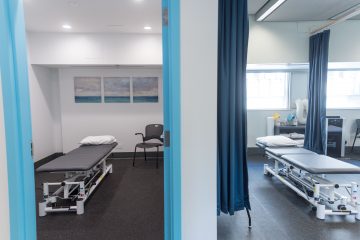The Department of Physical Therapy is extremely grateful for the support of Fraser Health, Vancouver Coastal Health and Northern Health to form a partnership, and clinical learning opportunities within student-led clinics. Four clinics are located in the Lower Mainland, and one is in Northern B.C. The department also has its own on-site student-led clinic.
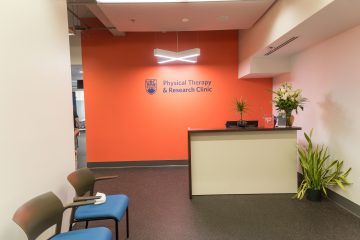
|
The UBC Physical Therapy & Research Clinic offers up-to-date and evidence-based physiotherapy services via two supervising clinicians and physical therapy students. Additionally, the clinic is home to several research programs. Students on placement might have the opportunity to participate in any of the following programs:
UBC students may have the chance to work with students from other Canadian and international physiotherapy programs, as the clinic operates year-round and can at times accommodate students from other programs. |
 |
A Fraser Health Student Rehabilitation Outpatient Clinic operates out of the Queen’s Park Care Centre in New Westminster. It began as a clinic in Royal Columbian Hospital in July 2009 and moved to its new location in 2017. The clinic provides an opportunity for up to six physical therapy students to work collaboratively in an interprofessional environment with occupational therapy students, and with visiting students from outside of BC. The clinic serves as an innovative and vital service to help bridge the gap for residents of the Fraser Health area, who often come to the clinic with complex multi-system needs.
Refer to this brochure for more information about this clinic. |
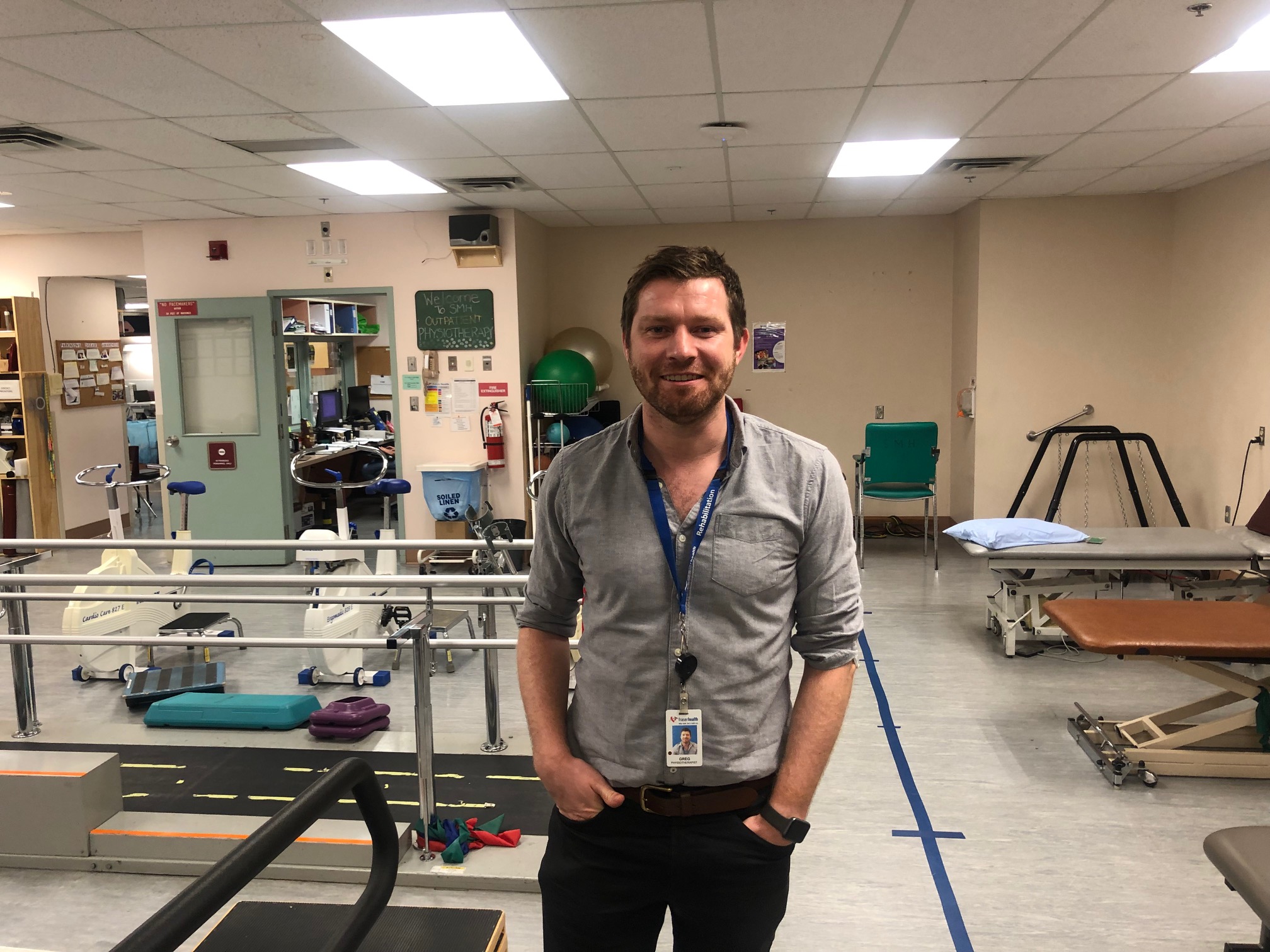 |
Another Fraser Health Student Rehabilitation Outpatient Clinic operates out of Surrey Memorial Hospital. It opened November 2013.
Refer to this brochure for more information. |
 |
The Neuromuscular Outpatient Program Student-led Clinic at the G.F. Strong Rehabilitation Centre (Vancouver Coastal Health) opened in April 2011. Here students have the opportunity to work at BC’s largest rehabilitation centre (serving all of BC and Yukon), under the auspices of outpatient services in the Neuromusculoskeletal Program, which services the neuromusculoskeletal population (e.g., multiple sclerosis, neuropathies, and cerebral palsy).
Students work closely with other physical therapy and occupational therapy students as well as collaborate with other team members such as physiatrists, orthotists, recreational therapists, social workers, nurses, psychologists, speech language pathologists, and dieticians. Unique opportunities potentially include shadowing other classes and/or programs such as pool classes and the Spasticity Clinic. |
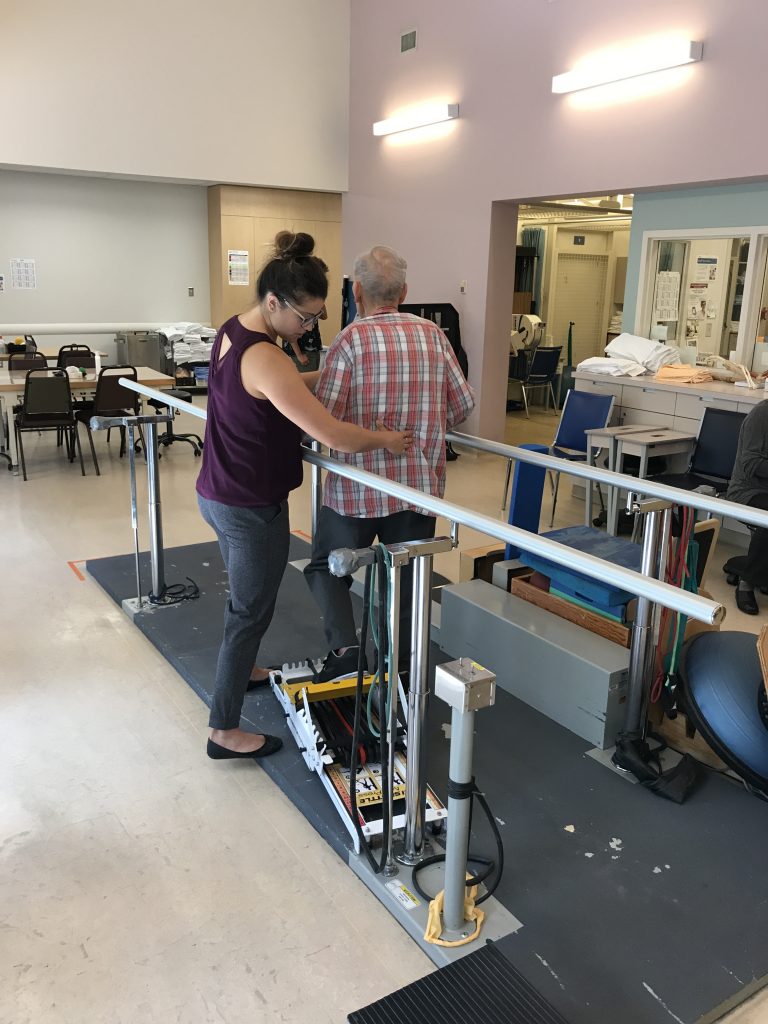 |
The PT Elder Care Student-led Clinic at Vancouver General Hospital (Vancouver Coastal Health) was established to manage the gap in service for elderly patients who have recently been discharged from hospital and who have multiple co-morbidities, recent functional decline, and/or who are at high risk for falls. The clinic focuses on targeted goal-based functional exercise. Understanding how chronic disease, medications, cognition, environment and social support affects functional outcomes helps students manage the whole patient experience.
Students work with patients individually and in groups to improve their strength, balance and mobility. There is a strong focus on the use and interpretation of outcome measures and setting functional goals. Refer to this handout for further information about the Elder Care Clinic. |
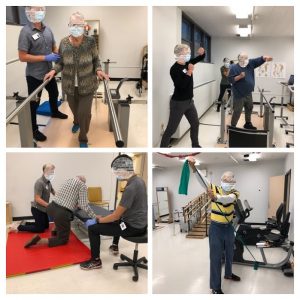 |
The Vancouver Community Physiotherapy Student Led Clinic at the G.F. Strong Rehabilitation Centre (Vancouver Coastal Health) addresses a gap in service for home health clients living in the Vancouver area, and provides a unique learning experience for physiotherapy students.
The clinic offers rehabilitation services for adults and older adults in an ambulatory clinic setting. The goal of the clinic is to improve the functional outcomes of home health clients by improving their physical function, reducing falls risk, and preventing or delaying hospitalizations. The clinic provides client-centred and goal-oriented assessments and treatments, using standardized outcome measures to track progress. Clients work on an individualized exercise program, and/or a group exercise program with a physiotherapy or rehabilitation assistant student, under the supervision of a licensed physiotherapist. This clinic supports students in providing evidence based care to a diverse client population. Students develop assessment techniques, clinical reasoning skills, and implement intervention plans. Students gain experience in discharge planning, caseload management, electronic documentation, professional communication, and working with a rehabilitation assistant. |
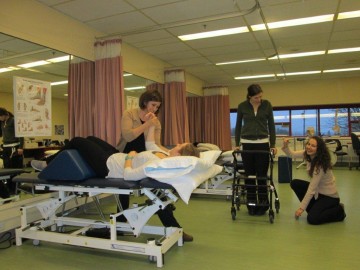 |
Please note that the Prince Rupert Interprofessional Student-led Model clinic is currently not accepting student placements.
The first student-led clinic located in northern B.C. opened at Prince Rupert Regional Hospital in August of 2013. The Prince Rupert Interprofessional Student-led Model Clinic (PRISM) is an exciting partnership between UBC, UNBC and Northern Health. The clinic is based on a primary health care approach and operates 26 weeks per year, corresponding to UBC MPT clinical placement dates. PRISM aims to provide students with a clinical experience that encompasses the full continuum of care. Students see clients with variable and often complex diagnoses in inpatient, outpatient and community care settings. Students engage with interprofessional colleagues to optimize client care. Unique interprofessional opportunities include: collaboration with occupational therapy and rehabilitation assistant students and staff; observation with the orthopaedic surgeon; case reviews with the acute care team including mental health, Indigenous liaison, dietician, pharmacy and homecare nursing; and collaborative educational sessions with medical imaging technology and pharmacy students. There is also often an opportunity for students to visit and provide care in Indigenous communities. |
